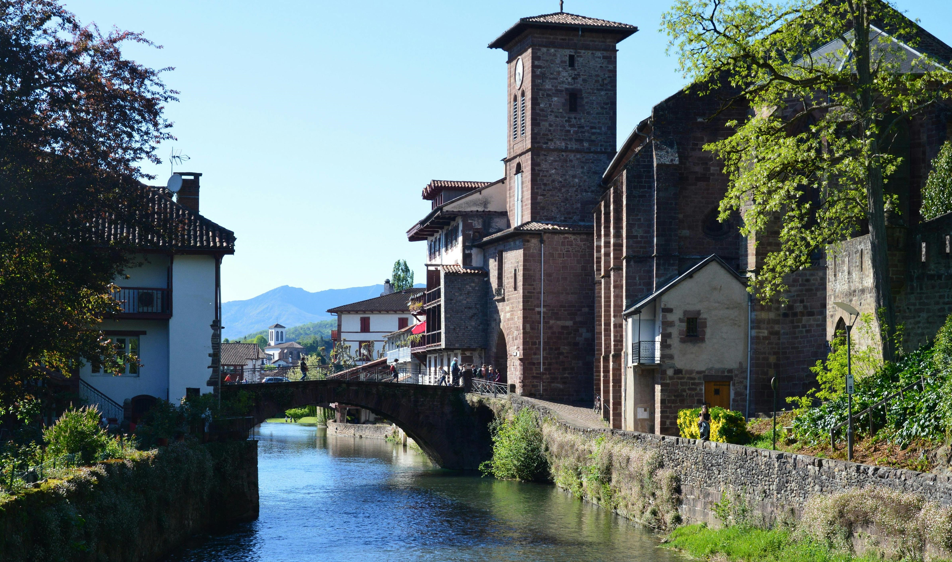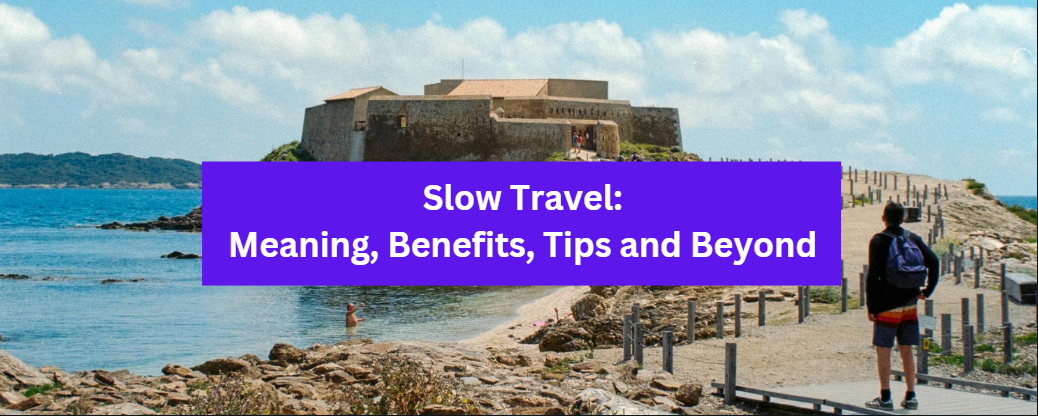
Travelling or traversing the world is indispensable. We all feel like dodging the everyday hustle-bustle of life at some point in time. As travelling is no less than therapy, we tend to think about what and where to explore. In the era of technological advancement, this task has become very easy. We are just one click away from finding multiple prospects about the best destination that can cater for our tastes, needs, and preferences. Our one click fetches us ample must-visit options, and we follow them with closed eyes. Travelling the highly favoured destination is conventional, and everybody is following the same, making these places crowded, expensive, and hectic to some extent. Enter: Slow travel. A new and evolving concept that can give travel a fresh perspective and fill the loopholes of conventional travelling.

Slow Travel Meaning:
Slow travel is a perspective that focuses on a more in-depth, more engaging experience of places by spending a longer period in the desired destination instead of running here and there across several sites. It encourages sustainability and conscious exploration, prioritizing environment-friendly conveyance and assisting local interactions.
It lets you travel organically and interact with regional practices, like knowing the language, partaking in community affairs, or cooking local cuisines, thus fostering a more significant association with the destinations. Slow travel lets you go slow, live in the present, live like a local, and appreciate your journey, offering more enriching, endearing, and extraordinary happenings.

Benefits of Slow Travel:
Here are a few benefits of travelling slow:
- Prolonged Stays: Slow travel allows you to spend more at your desired destination rather than hustling from one place to another. This way, you can enjoy the essence of the travel.
- Sustainable Travel: While travelling slowly, choose public transport, stay in eco-friendly lodges, and follow mindful practices. This way, you dodge the hurried practices, choosing unmindful options, and lessen the negative impact on the environment.
- Indulging Experiences: Conventional travelling offers you a superficial glimpse of the destination. In contrast, slow travel lets you spend more time in your destination, engage in local activities, learn their language, and embrace their culture.
- Flexible Itineraries: Conventional travelling demands a rigorous schedule. Slow travel lets you embrace spontaneity and modify your plans according to your needs, suggestions, and preferences.
- Reduced Stress: This encourages more leisure rather than hustle. It evades the haste of attempting to visit everything in a brief period. Sightseers can appreciate a more comfortable and stress-free occasion, with time to chill and relish their surroundings.
- Personal Connections: An extended stay in one place offers an opportunity to build a genuine connection with the place and people, forming influential interactions and understandings of the local way of life.
- Cost Savings: Unlike conventional travelling, when you go for extended stays during slow travel, it often results in cost savings, as tourists may fetch better prospects on fares, accommodations, activities, and more.
- Personal Development: Immersing in-depth with new circumstances enhances your personal development and makes you more self-aware, presenting fresh stances and significance.
- Enhanced Delight: When you make time for yourself, go slow, and embrace the new surroundings and happenings, it makes you happy and lets you de-stress. It builds confidence and curiosity about life.

Tips for Slow Travel
Here are a few top travel tips for slow travel exploration:
- Avoid Overplanning: The first and foremost tip is not to overplan your journey. That is the essence of slow travel. Decent planning is prudent, but overplanning kills spontaneity and intuitiveness.
- Choose Off-season: Plan your vacation during the off-season to evade the crowd and fetch convenience and reasonable prices.
- Off-beaten Destinations: Try to plan your slow travel to less-explored destinations, as these are quiet, serene, less-disturbed, and affordable places.
- Extended Stays: Try to stay a little longer in one place. This way, you can dodge the haste and embrace the place and its culture more beautifully.
- Local Accommodation: While choosing your accommodation, opt for local options. It will keep the culture and the local way of life closer.
- Local Conveyance: Go for local conveyance options to travel here and there and enjoy a more picturesque and comfy expedition, letting you appreciate the surroundings.
- Local Interaction: Do not forget to engage with the locals. Learn basic phrases of their language, call on regional markets, dine at local eateries, and participate in local fests.
- Walk More: Walk around your place to uncover the off-beaten gems.
- Support Local Businesses: Try to buy your stuff from local markets, dine at local eateries, and purchase souvenirs from local crafters.
- Lessen Environmental Impact: Slow travel lets you choose environmentally conscious steps.
- Appreciate the Journey: Relish the journey as the destination.
- Journal Your Experience: Maintain a travel journal, take pictures, or paint your experiences and keep remembrances in an influential way.
- Flexibility and Patience: Slow travel demands a flexible perspective. Embrace spontaneity and do not lose calm.
- Learn and Thrive: On your Slow travel, learn something, enriching your travel experience and widening your understanding of the world.

Conclusion
Slow travel is not only about traversing from one place to another. It is a stance fostering a more profound relationship with the destinations. By slowing down, sightseers can engage in local practices, build significant affiliations, and experience a prosperous and more fulfilling travel venture. The advantages of slow travel go above personal advancement. It also fosters sustainability, evades fast-paced travel, interacts with local people, or appreciates the expedition as much as the destination. So, on your next vacation, consider a slow travelling journey and uncover the pleasures of travelling at a more conscious and purposeful pace.

